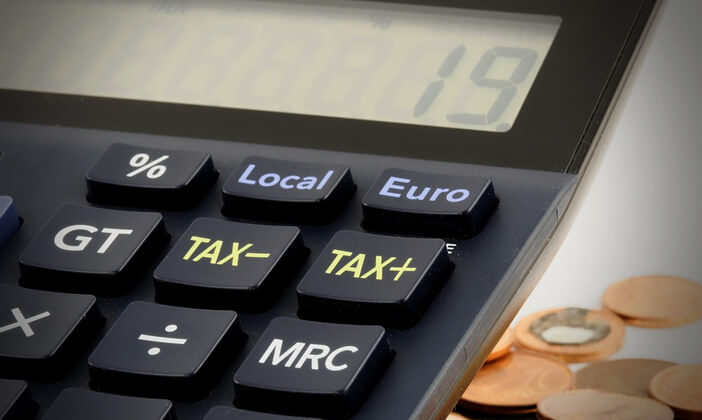Beware! Not all professional tax preparers have your best interest at heart. Some will throw in stealing your money as part of their service.
While there are many legitimate professional tax preparers who have solid reputations, not all tax preparers have your best tax interest at heart. Unscrupulous and unethical tax professionals use customers to make money by redirecting some of the taxpayer’s refund to their own accounts. They also have a tendency to charge higher fees and use the advertising of guaranteed larger refunds to attract more clientele.
When searching for a professional tax preparer keep the above items in mind. And it’s so important to remember that no matter who does your return, you’re the one who’s on the hook for everything on the tax form sent to the IRS on your behalf.
Looking Good – at your expense
Most tax preparing professionals feel a need to justify their services to taxpayers. And they do this by preparing a tax return that gives you the most value by paying the lowest possible tax. While there are plenty of ways to do this legally, a few tax preparers go beyond what’s indicated in the U.S. tax code. They put down deductions that aren’t legal, excessive tax exemptions and/or credits that aren’t allowed in your particular case. Really crooked tax professionals will employ all three of those methods in order to give you a tax return that looks too good to be true.
The tax law is cumbersome, complicated and most people don’t take the time to read or understand it. So when presented with a return higher than you thought you were going to get, it’s very tempting to go along with it. After all…you did hire a professional who must know more than you do about how to maximize the deductions available to you. The problem with that is even if you don’t know your tax preparer has done something illegal, you’re held ultimately responsible for your return and what’s sent to the IRS.
Prior to hiring a professional tax preparer, research their background and ask for independent references you can double check. We suggest asking friends and family for names of the people who do their taxes and if they would recommend them. Key items to find out are if they’ve ever been disciplined by the state or federal government and/or convicted of fraud. If so, you’ll want to know so you can steer clear.
You’ll pay for their mistakes
Tax preparers want your return business, no pun intended, and an unscrupulous one might go to extreme lengths to look good in your eyes. Claiming bogus expenses, deductions, exemptions and credits on your tax returns to “help” you save money is a great way to do this. The problem is that when the IRS finds out fraudulent claims were made on the return, you’re the one who will have to pay the additional taxes, pay interest, be subject to penalties and criminal prosecution.
You can’t blame tax preparers for mistakes
While most preparers do solid work for their clients, the IRS urges taxpayers to be very thorough when choosing a tax preparer, just as you would when choosing an accountant, doctor or lawyer. The IRS warns taxpayers to be cautious of claims done by preparers offering larger refunds than others. It’s a great idea to check it out with a trusted tax professional or the IRS before getting involved, especially since it’s your neck on the line, not the preparers.
Tax evasion is a risky crime, a felony, punishable by five years imprisonment and a $250,000 fine. Remember, when the IRS identifies a tax return as fraudulent they go after the client and not the tax preparer. You can point fingers at your tax preparer all you want. The IRS is going to be knocking on your door, not your tax preparers.
Helpful Hints When Choosing a Return Preparer
- Avoid tax preparers who claim they can obtain larger refunds than other preparers.
- Avoid preparers who base their fee on a percentage of the amount of the refund.
- Use a reputable tax professional who signs your tax return and provides you with a copy for your records.
- Consider whether the individual or firm will be around to answer questions about the preparation of your tax return months, or even years, after the return has been filed.
- Review your return before you sign it and ask questions on entries you don’t understand.
- No matter who prepares your tax return, you (the taxpayer) are ultimately responsible for all of the information on your tax return. Therefore, never sign a blank tax form.
- Find out the person’s credentials. Only attorneys, CPAs and enrolled agents can represent taxpayers before the IRS in all matters including audits, collection and appeals. Other return preparers may only represent taxpayers for audits of returns they actually prepared.
- Find out if the preparer is affiliated with a professional organization that provides its members with continuing education and resources and holds them to a code of ethics.
- Ask questions. Do you know anyone who has used the tax professional? Were they satisfied with the service they received?
Once you’ve decided on a preparer, keep the following in mind:
- Tax return preparers are required to sign the return, finish the preparer portions of the form and include his or her identifying number. A copy of your return should always be provided.
- As a final check, review your return and ask any outstanding questions before it’s sent to the IRS.
- Don’t ever sign a return in pencil.
- Never sign a blank return.
The Bottom Line
Please always remember, tax preparers can save you money by taking advantage of legal deductions you were unaware of, however, they can also get you into a lot of trouble too.

